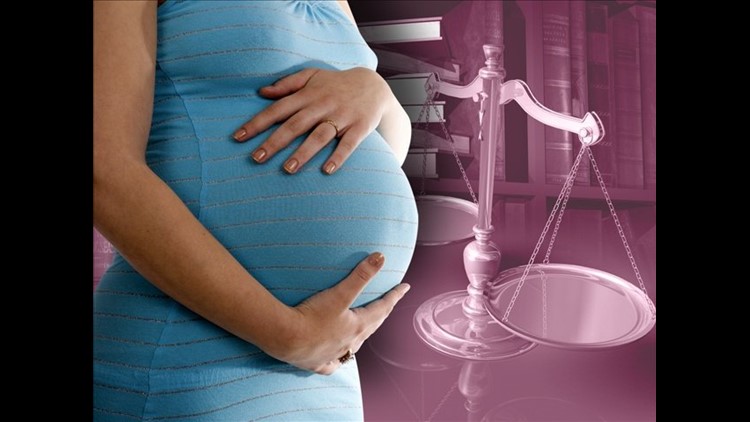(CBSNews)- The liberal justices on the Supreme Court on Wednesday suggested they’re interested in ensuring that pregnant workers get on-the-job accommodations when they need them. Not all of the liberal justices, however, seemed sure of the extent of the protections afforded under the Pregnancy Discrimination Act (PDA) passed in 1978.
If an employer makes accommodations for certain categories of workers but not others, “which distinctions are reasonable?” asked liberal Justice Stephen Breyer, getting to the crux of the case, Young v. United Parcel Service.
Former UPS worker Peggy Young sued UPS after the company in 2006 put her on unpaid leave rather than allow her to go on “light duty” during her pregnancy. Young requested the accommodation after her doctor told her she should avoid lifting more than 20 pounds.
Young and her allies argue the case amounts to unlawful discrimination, since the company made accommodations for other workers, including employees who lost their driver’s licenses due to DUI convictions. UPS contends it followed the law because, under the policy established through a collective bargaining agreement, the company only altered assignments for workers under specific circumstances, regardless of whether they were pregnant or not — to workers injured on the job, those disabled under federal disability rights law, or those who lost their federal driving certification.
UPS’s attorney Caitlin Halligan described it to the court as a “neutral policy.”
Young’s case zeroes in on the language of the of the PDA, which says employers must treat “women affected by pregnancy” the same as “other persons not so affected but similar in their ability or inability to work.”
Conservative Justice Samuel Alito acknowledged to Young’s lawyer, “You read that as an accommodation provision, and maybe it is.”
Conservative Justice Antonin Scalia was much more skeptical. He repeatedly argued that Young’s attorneys were seeking “most favored nation” status for pregnant workers — in other words, pregnant workers should be treated equally to the best-treated workers.
Groups defending UPS, such as the U.S. Chamber of Commerce, have argued that this level of treatment could have “untenable and implausible results” in the business world, such as prohibiting neutral seniority policies.
Liberal Justice Ruth Bader Ginsburg argued that UPS’s interpretation of the PDA amounted to giving pregnant women “least favored nation” status. UPS’s policy was broad enough to accommodate just about everyone but pregnant women, she noted.
The U.S. Solicitor General Donald Verrilli also argued in favor of Peggy Young’s case. UPS couldn’t deny pregnant workers on-the-job accommodations simply because they may have denied some non-pregnant workers such accommodations, he said. “Congress chose to protect women” explicitly in the PDA, he said.
Halligan, UPS’s lawyer, noted that the democratic process is working to improve protections for pregnant workers.
However, liberal Justice Elena Kagan said, “For the democratic process to work, the PDA has to get a fair reading.” UPS’s policy, she said, “puts pregnant women on one side of the line” and other works on the opposite side.



